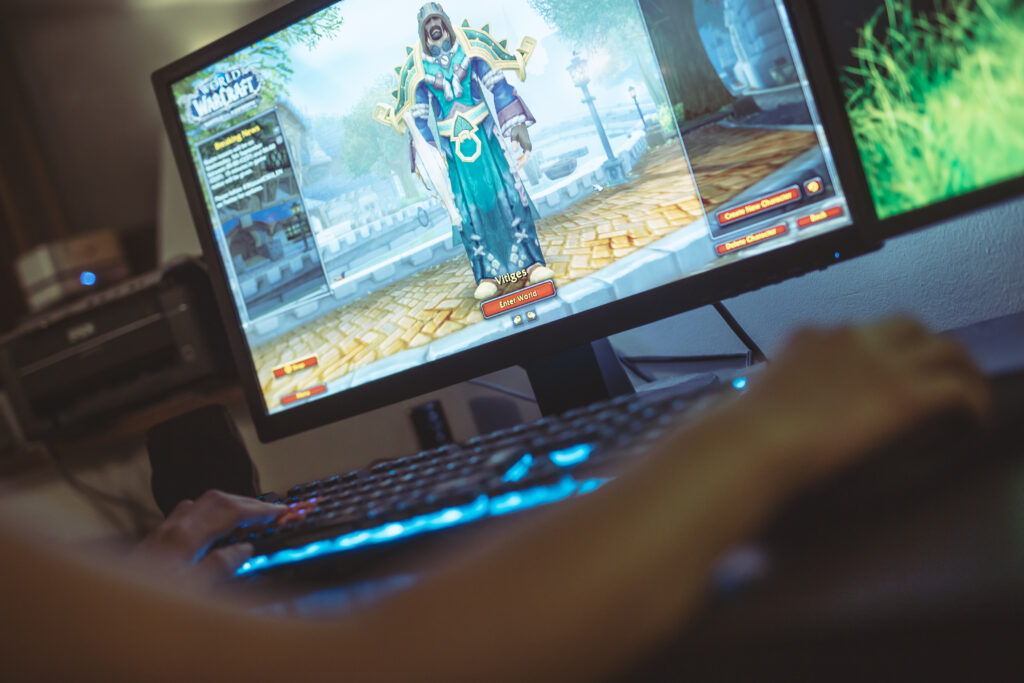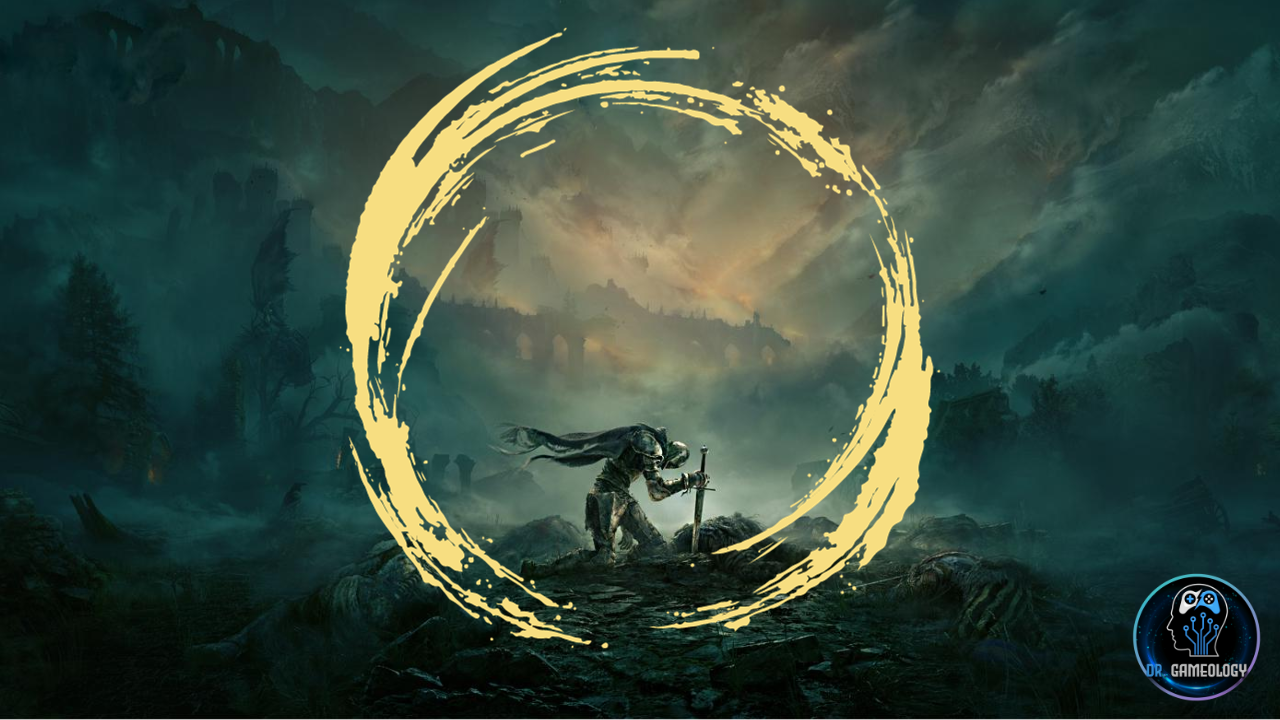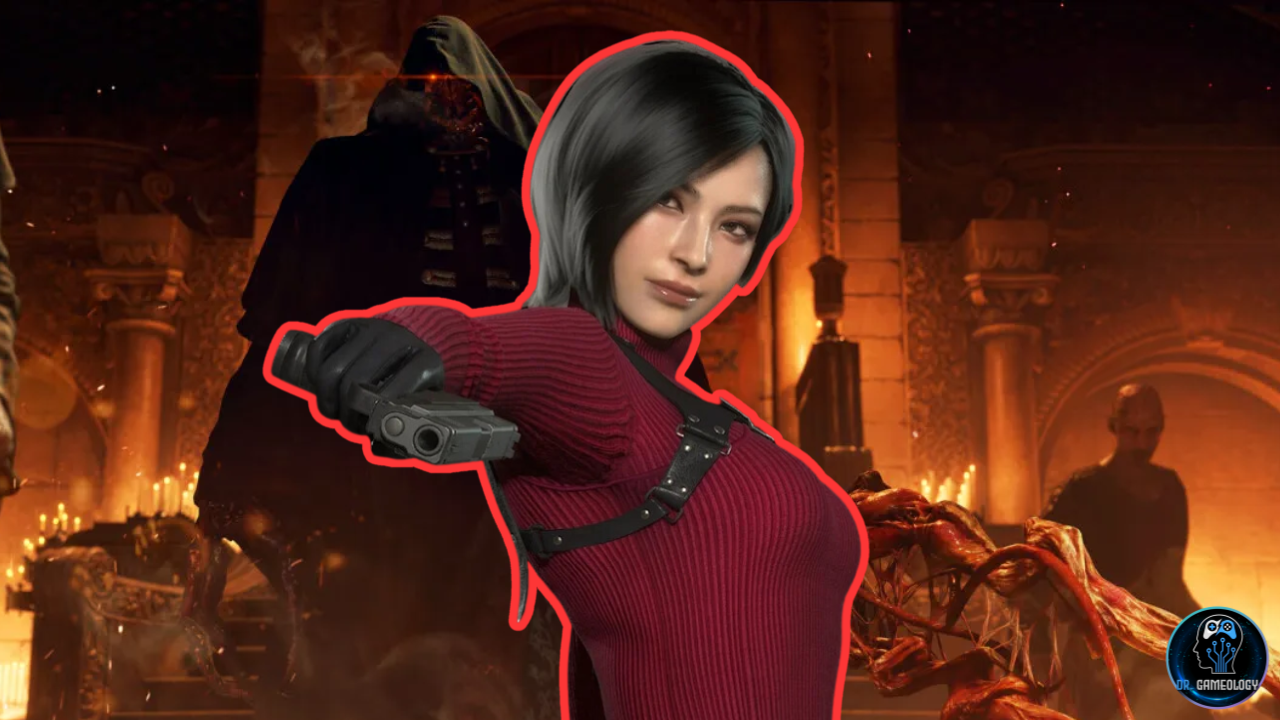Let’s Review Some Basic MMORPG Psychology from the World of Online Gaming
An MMORPG, or Massively Multiplayer Online Role-Playing Game, is a type of video game where players from around the world can play together in the same virtual world. This genre has become increasingly popular over the years for explaining MMORPG Psychology, with games like World of Warcraft and Final Fantasy XIV Online racking up millions of players. MMORPGs are usually very social games and can be quite addictive for some people. They come in all shapes and sizes, but the basic premise is always the same: traverse a virtual world, complete quests, earn rewards, and interact with other players. While they can be a lot of fun, MMORPGs can also be quite complex and overwhelming for newcomers. In this post, we’ll take a look at the basics of MMORPGs and what makes them so captivating.

MMORPG Psychology: What is an MMORPG and how is it different from other video games genres?
Video games have come a long way since the early days of Pong and Pac-Man. Today, video games are immersive, involved experiences that can transport players to other worlds. One of the most popular genres of video game is the MMORPG, or massively multiplayer online role-playing game. In an MMORPG, players take on the role of characters in a virtual world and interact with other players from around the world. The most popular MMORPGs boast millions of active players at any given moment. What sets MMORPG Psychology apart from other video games is the sheer scale and scope of the game world. In an MMORPG, players create their own character, explore vast lands, undertake quests, and form guilds with other players. There really is an activity for every personality and motivation a player could have. Most games in the MMO genre contain too many activities to ever complete them all. There is also a great deal of social interaction in an MMORPG; players often form close friendships (or rivalries) with other users. For many people, an MMORPG is more than just a game; it is a community that they can belong to.
MMORPG Psychology: The History of MMORPGs & The Games We Should Know
MMORPGs first rose to popularity in the 1990s with early games such as Ultima Online and EverQuest. These early MMORPGs paved the way for modern games like World of Warcraft, which has over 12 million subscribers worldwide. The appeal of an MMORPG lies in its ability to transport players to a different world where they can be anyone they want to be. In many ways, MMORPGs are like virtual versions of Dungeons & Dragons; players create characters and go on adventures in a make-believe world. The social aspect of MMORPGs is also very appealing; players can meet people from all over the world and form friendships (or rivalries) that last long after the game has been turned off.
While MMORPGs are only a few decades old, their roots can be traced back to early text-based games such as MUDs (multi-user dungeons). These early games allowed players to explore virtual worlds and interact with other players. The first true MMO was Meridian 59, an online swords and sorcery RPG which was released in 1996. Since then, the genre has exploded in popularity. Some of the most popular MMORPGs include World of Warcraft, Final Fantasy XIV Online, and The Elder Scrolls Online.

MMORPGs have come to dominate the gaming landscape in recent years. In part, this is due to the fact that they are very social experiences. Players can form guilds with other users and undertake quests together. There is also a great sense of community in MMORPGs; players often form close friendships with other users. For many people, an MMORPG is more than just a game; it is a community that they can belong to. Guilds can help players to complete quests and earn rewards, and they also provide a sense of belonging. MMORPGs also tend to be addictive in the best and worst senses of the word; many players find themselves spending hours upon hours in-game, sometimes when they did not mean to in the first place.
While MMORPGs are extremely popular, they are not for everyone. The subscription fees can be a turn off, and the games can be very time-consuming. MMORPGs also require a great deal of investment; players need to be willing to put in the time to learn all the game’s mechanics and level up their characters. However, for those who are willing to make the commitment, MMORPGs can provide an immersive and rewarding experience unlike any other.
What really sets MMORPGs apart from other video games is the sheer scale and scope of the game world. In an MMORPG, players can explore vast lands, undertake quests, and form guilds with other players. There is also a great deal of social interaction in an MMORPG; players often form close friendships (or rivalries) with other users. For many people, an MMORPG is more than just a game; it is a community that they can belong to.
MMORPG Psychology: Creating a Character & Understanding Class Choices
When starting an MMORPG, players will need to create a character. This usually involves choosing from a variety of races and classes. Different MMORPGs have different races and classes, but they all typically fall into the same archetypes. For example, in World of Warcraft, there are two main factions: the Alliance and the Horde. The Alliance is made up of humans, dwarves, gnomes, and night elves; the Horde is made up of orcs, trolls, tauren, and undead. Players can also choose between a variety of classes such as warriors, mages, priests, rogues, and hunters.
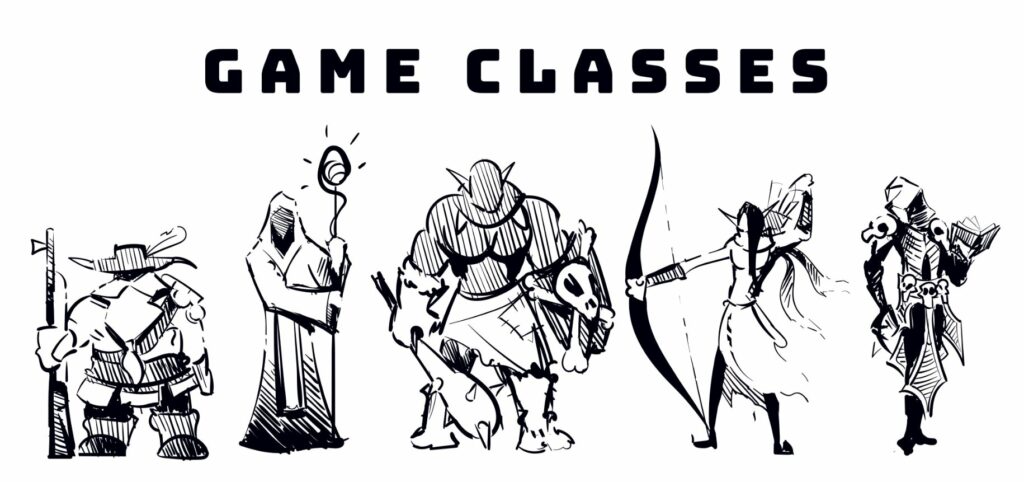
Choosing the right class is important; each class has its own strengths and weaknesses. Warriors are good at tanking (i.e., taking damage), while mages deal a lot of damage from range. Priests can heal, and rogues are good at stealth and dealing burst damage. Hunters are versatile and can tame pets to help them in combat.
Players should also consider their playstyle when choosing a class. For example, do they want to be on the front lines of combat, or would they prefer to hang back and deal damage from range? Do they want to play alone or with a group? Answering these questions will help players choose the right class for their MMORPG adventure.
Once players have chosen a class, they will need to level up their character by completing quests and defeating enemies. MMORPGs typically have levelling systems that allow players to track their progress. As players level up, they will gain access to new abilities and equipment. Players can also improve their characters by completing quests and defeating enemies. MMORPGs typically have levelling systems that allow players to track their progress. As players level up, they will gain access to new abilities and equipment.
Players can also customize their characters with a variety of different gear options. Gear not only affects a character’s appearance, but it can also provide stat bonuses that can help in combat. In most MMORPGs, gear is acquired through questing, looting enemies, or crafting. Some MMORPGs also have player-driven economies, where players can buy and sell gear with other users.
In essence, players can become whatever they want to within the class and adventuring styles of the game. They can focus on gear and power, or can spend their time gaming the virtual economy to become rich. There are actually too many activities to list game-to-game. An it all starts with character creation!
The Benefits of Playing MMORPGs & Why They Are So Popular
MMORPGs are popular for a number of reasons. They offer a sense of community and belonging that is not found in other video game genres. Players often form friendships (or rivalries) with other users, and many people view an MMORPG as more than just a game; it is a community that they can belong to. MMOs are very immersive; the vast scope of the game world allows players to really feel like they are part of another world. MMORPGs can also be played in a flexible way; players can play for a few minutes or a few hours, depending on their schedule. This flexibility is not always found in other video game genres.
From a scientific perspective, the benefits of gaming activities which can be found in MMO's can be explained in the following areas: cognitive, emotional, motivational, and educational.

MMORPGs have been found to improve players’ problem-solving skills, critical thinking, and memory. They have also been found to increase players’ sense of social connectedness and reduce their levels of anxiety and depression. Motivation can be better understood by reflecting on what makes us want to play video games as well. Games give us opportunities to learn about ourselves by offering challenges in the areas of our achievement, socialization, and immersion in the virtual worlds. The things we spend time doing are a reflection of what we hope to get out of our day if there were ever no limits to our choices and resources. Many prosocial skills, such as teamwork and cooperation, can also be learned from playing MMORPGs. Finally, MMORPGs can be used as a tool for education; players can learn about history, culture, and even science from playing these games. Online games can even be used to educate players about real-world topics such as history, geography, and science.
How To Choose The Right MMORPG For You (and Some Popular Ones To Get Started With)
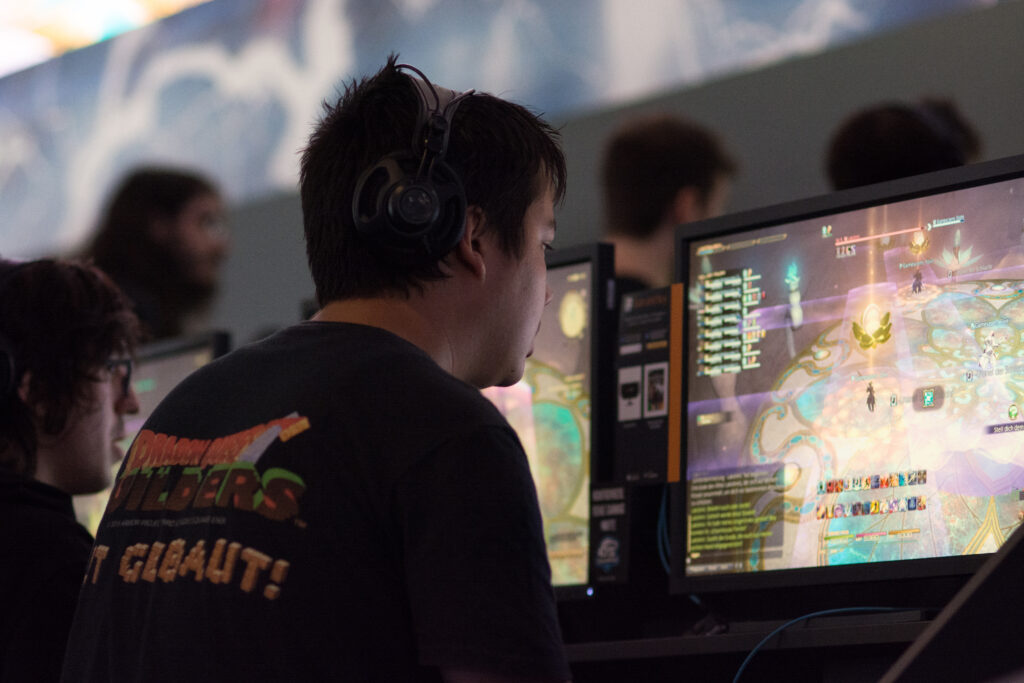
With so many MMORPGs on the market, it can be hard to choose the right one for you. Here are some things to consider when choosing an MMORPG:
- What is your budget? Free-to-play MMORPGs are typically supported by in-game microtransactions, while subscription-based MMORPGs require a monthly fee.
- What type of gameplay do you prefer? Some MMORPGs focus on PvE (player vs. environment) content, while others focus on PvP (player vs. player) content. There are also a number of hybrid MMORPGs that offer both PvE and PvP content.
- What is your preferred playstyle? Do you like to move quickly through content or do you prefer to take your time and explore everything the game has to offer?
- What is your preferred graphics style? Some MMORPGs have realistic graphics, while others have more cartoony graphics.
Once you’ve considered these factors, you can narrow down your choices and start exploring some of the most popular MMORPGs the worlds of online gaming have to offer. It can also help to have a partner to enter these worlds with so that you don’t have to be afraid of going into battle alone. This can help unlock many of the opportunities you might miss in the early game, and it makes the challenge of the game much more social.
How To Make Sure Our Gaming Leads to Healthy MMORPG Psychology
Like anything else in life, it is important to make sure that our gaming habits are healthy. Here are some things to keep in mind:
- Make sure you set aside time for other activities. It is important to have a balance in your life and not let gaming consume you. Make sure you are still spending time with friends and family, going outside, and doing other activities you enjoy.
- Don’t spend more money than you can afford on microtransactions or subscription fees. MMORPGs can be expensive, so make sure you budget accordingly.
- Be careful about how much time you spend playing. It is easy to get lost in an MMORPG, but remember that there is a real world outside of the game world
Following these tips and checking in on your mental health in all of your life areas before, during, and after each play session can help you create a gaming routine that stays healthy for all of you, not just the side of you that is looking for an opportunity to have fun playing games.
MMORPG Psychology: The Future of MMORPGs: What Can We Expect From Them?
MMORPGs have come a long way since their humble beginnings, and they show no signs of slowing down. With the release of new MMORPGs each year and updates to existing games, the genre is always evolving. Here are some things we can expect from MMORPGs in the future:
- More social features. MMORPGs are becoming more and more social, with features like guilds, voice chat, and in-game events becoming more common.
- Better graphics. As technology improves, so too will the graphics of MMORPGs. We can expect to see even more realistic and immersive worlds in the future.
- Increased accessibility. MMORPGs are already accessible to a wide range of players, but we can expect to see even more features that make them accessible to everyone, regardless of ability.
- More diverse gameplay. MMORPGs are already pretty diverse, but we can expect to see even more variety in the future, with games catering to all sorts of different playstyles.
We can also expect to see MMORPGs continue to grow in popularity. With more and more people playing them, we can expect to see even more MMORPG Psychology throughout the development in the genre, making it more and more enjoyable for everyone.
The bottom line is that MMORPGs offer a unique gaming experience that has something to offer everyone. Whether you are looking for a sense of community, an immersive game world, or just a flexible gaming schedule, knowing the workings of MMORPG Psychology could help this genre change the way you see video games!
Thank you for leveling up your mental health here at Dr. Gameology, and always remember . . . Continue the Journey!

Important Links
- @DrGameology – Twitch
- Apple Podcasts – The Gaming Persona
- Spotify – The Gaming Persona
- Google – The Gaming Persona
- LinkedIn – Connect with Me
- Blogs – Dr. Gameology

